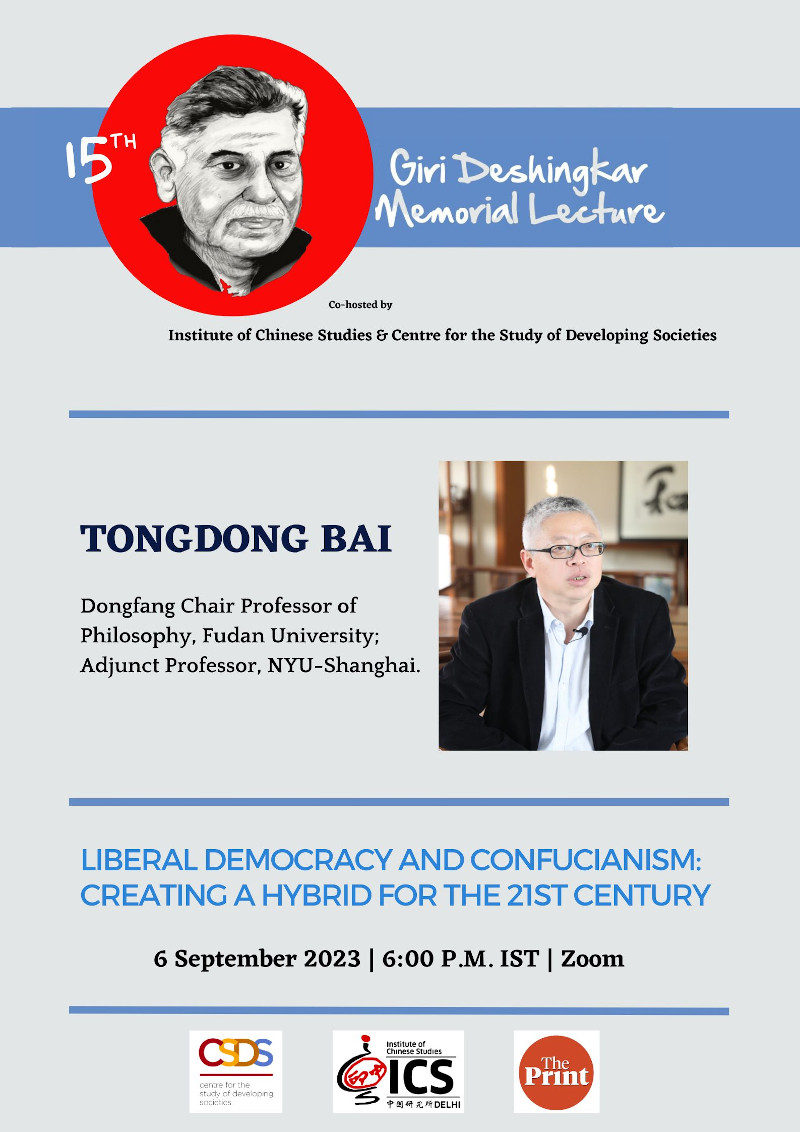Abstract
There are a number of problems with liberal democracy, especially the institution of one person one vote. Many democratic and liberal thinkers understand them and try to correct them from within. The speaker however argues that such revisions are fundamentally inadequate to address the problems. A sounder political arrangement could emerge from conceptualising a hybrid regime that contains both democratic and meritocratic elements, which is what a Confucian would propose. The speaker illustrates the basic arrangements of such a regime, and argues why it can not only deal with the extant problems but also why it is superior to contemporary democratic regimes.
About the Speaker
Dr. Tongdong Bai is the Dongfang Chair Professor of Philosophy at Fudan University in China, an Adjunct Professor at NYU-Shanghai, and a member of the Pontifical Academy of Social Sciences. His research interests include Chinese philosophy and political philosophy. He has two books published in English: Against Political Equality: The Confucian Case (Princeton University Press, 2019) and China: The Political Philosophy of the Middle Kingdom (Zed Books, 2012), and three in Chinese: A New Mission of an Old State: The Comparative and Contemporary Relevance of Classical Confucian Political Philosophy (Peking University Press, 2009), Tension of Reality: Einstein, Bohr and Pauli in the EPR Debates (Peking University Press, 2009), and Tian Xia: Five Lectures on the Mencius (Guangxi Shifan University Press, 2021). He is now working on the philosophy of Han Fei Zi (circa 250 BCE), a “Legalist” and a harsh critic of Confucians, as well as a real-life princeling who is often compared with Machiavelli and Hobbes. He is also the director of an English-based MA and visiting program in Chinese philosophy at Fudan University that is intended to promote the studies of Chinese philosophy in the world. These and other academic and social activities in which he is involved are all aimed to introduce new political norms that draw their inspirations from traditional Chinese philosophy and are informed by comparative philosophy and political theories.

 Report
Report